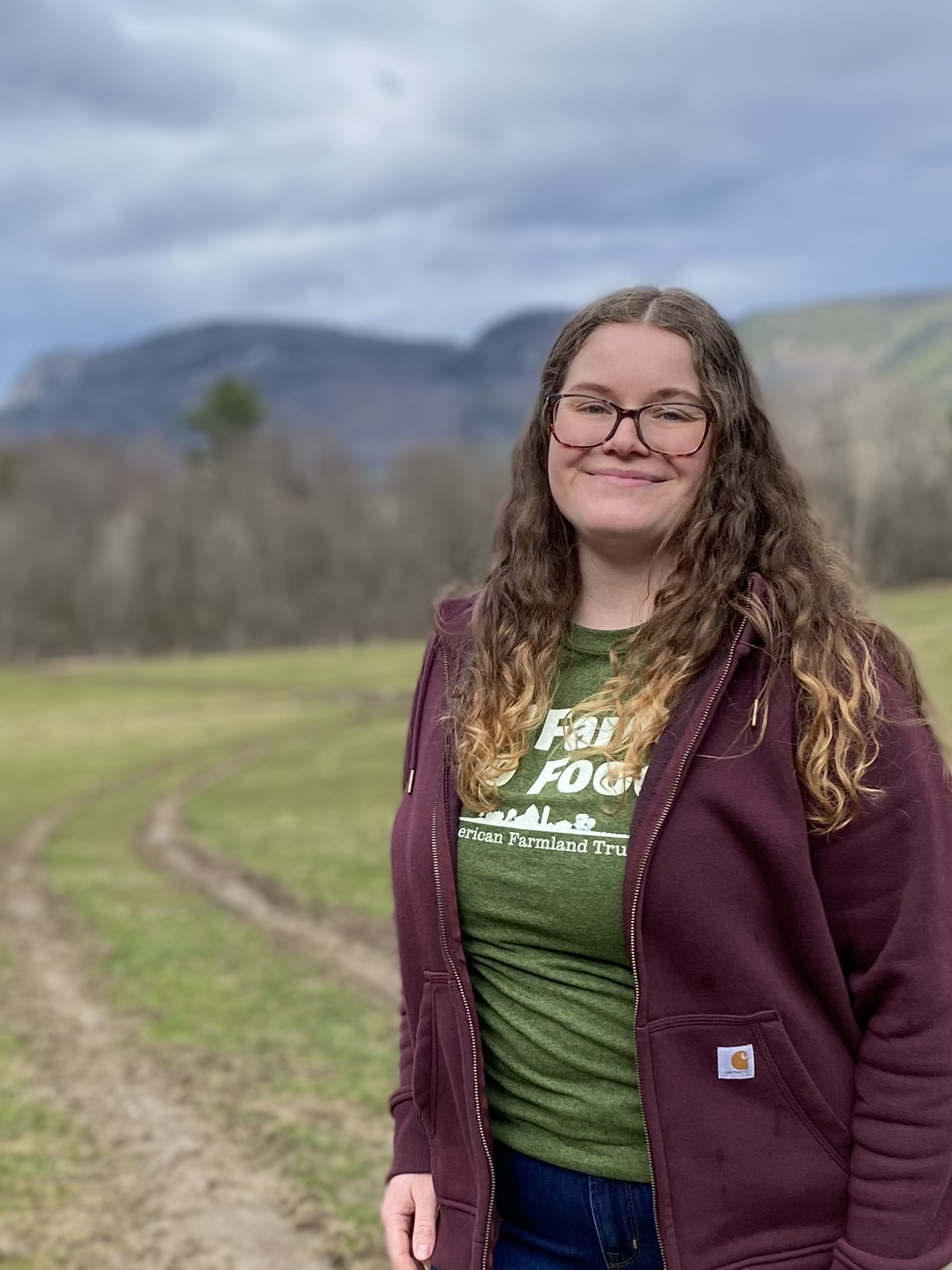New Case Study and Western New York Field Day Aim to Help Farmers Adopt Conservation Practices
Saratoga Springs, NY—As farmers grapple with severe weather conditions in their fields this season, American Farmland Trust is releasing a new soil health case study at the Western New York Field Day taking place at Mulligan Farm, the farm featured in the study, on Aug. 31. Combined, this new case study and in-person event aim to help farmers adopt or expand conservation practices that benefit the environment and their bottom line through the Genesee River Demonstration Farms Network.
Launched in 2018, the Genesee River Demonstration Farms Network, in partnership with AFT, USDA’s Natural Resources Conservation Service, and the Great Lakes Restoration Initiative, showcases the impacts of practical and innovative conservation practices on real working farms. While focused on the Genesee River Watershed, these resources are applicable to farming operations across the state and beyond.
Mulligan Farm Case Study
A new soil health case study features Mulligan Farm, a 1,500-head dairy spanning 2,618 tillable acres in western New York. Since 2008, Forrest Watson has farmed with his aunt and uncle, Lesa and Jeff, and supported the farm’s efforts to improve efficiencies and build soil health on the farm through an 8-year crop rotation, minimum tillage, cover crops, and adaptive nutrient management.
American Farmland Trust in partnership with the Cornell Cooperative Extension Northwest NY Dairy, Livestock and Field Crops team completed a partial budget analysis to determine the economic impacts of Mulligan Farm’s soil health practices with the following outcomes:
Incorporation of their soil health system coincided with an increase in the farm’s net income of $75 per acre per year or $196,350 annually for the 2,618-acre study area, achieving a 129% return on investment.
USDA’s COMET Tool was used on a 35-acre parcel to evaluate the effects of these soil health practices on greenhouse gas emissions and found that the farm’s use of no-till, cover crops, and nutrient management reduced nitrogen, phosphorus, and sediment losses by 4%, 33%, and 60%, respectively and resulted in a 252% reduction in total greenhouse gas emissions, which corresponds to taking two cars off the road each year.
Read the full case study here.
Western New York Soil Health Field Day: Carbon Markets and Soil Regenerative Practices
WHEN: August 31, 2021, 10:00am to 3:00pm
WHERE: Mulligan Farm, 5403 Barber Road, Avon, NY 14414
RSVP: www.farmland.org/WNYFieldDay
Participants can expect to learn:
Navigating the growing availability and diversity of market incentives for ecosystem services
How implementing soil regenerative practices can increase farm profitability from real-life case studies from local crop and vegetable farms
How the host farmer is evaluating planting green on their Livingston County farm while learning to minimize herbicide use and maintain productivity
How to conduct an in-field assessment to evaluate the health of your soil
How farmers and farmland owners can work together to improve conservation on rented lands
AFT’s full collection of soil health case studies, farmer videos, an interactive demonstration farms map, and upcoming events can be found at www.farmland.org/geneseeriverdemofarms.
###
American Farmland Trust is the only national organization that takes a holistic approach to agriculture, focusing on the land itself, the agricultural practices used on that land, and the farmers and ranchers who do the work. AFT launched the conservation agriculture movement and continues to raise public awareness through our No Farms, No Food message. Since our founding in 1980, AFT has helped permanently protect over 6.5 million acres of agricultural lands, advanced environmentally-sound farming practices on a half million additional acres and supported thousands of farm families.




